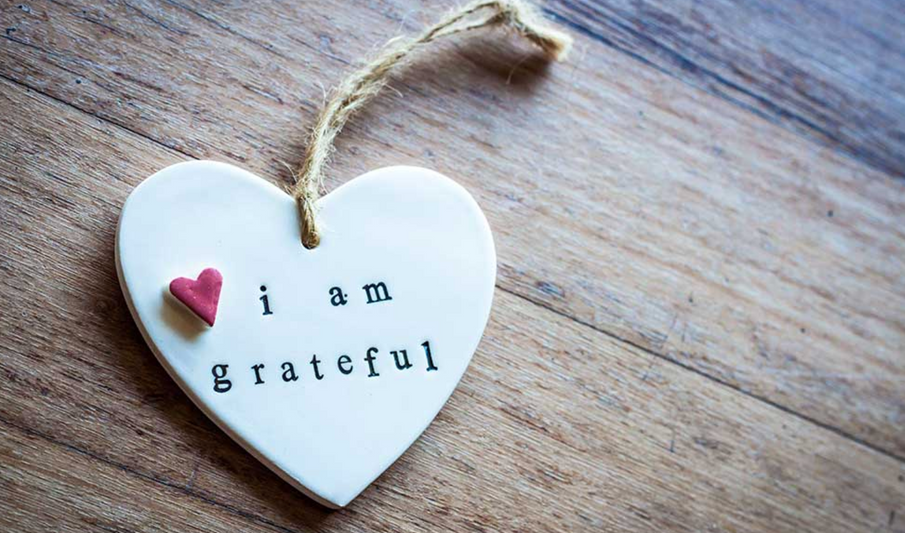How well do you know yourself? It's impossible to set goals if you don't know what's truly important to you. Developing self-awareness is essential for living the life you want to live.
Here's where it gets interesting: sometimes, we don't know ourselves as well as we think we do.
What Is Self-Awareness?
Merriam-Webster defines it like this: "an awareness of one's own personality or individuality". That's pretty straightforward. It means knowing what makes you happy, sad, angry, inspired, motivated, and more. It means knowing you get sleepy after one glass of wine, setting your alarm ten minutes earlier because you struggle to make it out of the house on time, and exploring tools to help you focus if you're easily distracted during your workday.
From a psychology perspective, there are five levels of self-awareness:
- Differentiation: This is the most basic level, where a child becomes aware of his or her own reflection in the mirror.
- Situation: At this point, a child realizes that what he or she does will be reflected in the mirror.
- Identification: Here, a child knows it's "me" in the mirror.
- Permanence: This is where a child starts to identify himself or herself outside the mirror, as in pictures—even those taken when the child was younger.
- Self-Consciousness ("meta" self-awareness): "The self is now recognized not only from a first-person perspective but also from a third person's. Individuals are not only aware of what they are but how they are in the mind of others: How they present themselves to the public eye (Goffman, 1959)."
The first four levels happen fairly early in life. Clearly, that fifth level is something that starts at a young age and continues to evolve as we learn more about ourselves and how we're seen by others.
What Gets in the Way of Self-Awareness?
In her book Insight, Tasha Eurich talks about two types of self-awareness: our awareness of who we are and what we like, and our awareness of how others perceive us. She gives stellar examples of managers who think they're fantastic, effective leaders, when in fact their employees find them overbearing and incompetent.
As another example, take a look at the American Idol auditions. Contestant after contestant goes in thinking they have it in the bag, and even the untrained ears of the at-home audience can tell they're not made to be singers. What gave them such a lack of awareness of their own ability?
Eurich talks about how our friends and family don't always contribute to our own awareness. Those singers very likely have friends who are protecting their feelings by telling them how great they are; their families may be biased enough not to even notice they can't carry a tune. Friends and family may give us a faulty perception of ourselves by complimenting—or criticizing—us in areas where we don't deserve it.
In The Happiness Project, author Gretchen Rubin says one part of happiness is doing the things that truly make us happy, no matter how "uncool" they might be, instead of doing the things we think we should enjoy. For example, going to the club is generally considered fun. But is it fun for you? Do you really love the noise, the crowd, and staying up so late you're exhausted the next day? Maybe you do! Or maybe it's not for you at all, but you put it up with it because your friends like it and it seems like something you should want to do.
There is no should when it comes to the things we enjoy and don't enjoy. There is only what's true for you, and your awareness is the only thing that will shed light on that.
On that note, our own judgments about our habits and preferences can also interfere with our awareness. Just like with hobbies we find enjoyable or not, if we don't believe our purpose (with work, family, etc.) is big or important enough, we might strive to do something else we're not suited for.
How Awareness Will Change Your Life
It could change everything. Let's say you're on a path to become a doctor because your parents always wanted that for you, and people have always said how good you'd be at it, and you're attracted to the idea of the respect you will earn—but on the day you realize anatomy, medications, and mystery illnesses don't excite you and you don't want to be on call on the weekends, everything changes if you follow that awareness into a new realm of possibility. If you don't, you end up in a life that's not ideal for you.
There are a lot of other tiny shifts that could happen in your life as a result of your own self-awareness:
- You might start spending time with different people because you realize certain friends were draining your energy.
- You might pick up a new hobby.
- You might take a class in a subject that always interested you but seemed out of reach.
- You might work fewer hours because you realize you need more time to rest or spend with family.
- You might stop doing so many high-intensity workouts per week because you realize you're feeling worn down rather than stronger and more efficient.
- You might eat different foods as you realize what your body needs and responds to.
- You might behave differently in a common situation because you understand how other people react to your behavior.
These small shifts add up to big ones. Not only will you feel more in control of your life, but you'll also make better choices, become a better leader, spend less time worrying, and feel happier overall.
How to Become More Self-Aware
It starts with intention. You have to decide self-awareness is important to you and outline a plan to help yourself develop it. Here are a few ideas:
Start a Journal
This Psychology Today article suggests practicing self-reflection on a daily basis for at least twenty minutes. "This practice enables you to focus on the important things in your life, not just the immediate. Research from Wisconsin's Richard Davidson demonstrated a direct correlation between mindfulness and changes in the brain—away from anger and anxiety and toward a sense of calm and well-being."
The Happier Mind Journal is designed to help you focus on your goals—the important things in your life—with a positive outlook and a spirit of gratitude. Our Quick Start Guide explains the importance of your daily journaling practice and how to get started.
Meditate
Quieting your mind gives you the space to learn about yourself. A meditation practice doesn't have to be long and complicated; instead, focus on spending just two minutes a day in silence and stillness. Practice observing your thoughts rather than entertaining them. What passes through your mind? Can you breathe it away? As you get better at it, start lengthening your meditation sessions until you work up to 20 or 30 minutes. Meditation offers a wide variety of benefits (backed by science!), including better emotional health and enhanced self-awareness.
Be Open to Feedback

One thing Eurich discovered in working with executives is that many top leaders didn't want to hear they had faulty perceptions about how others viewed them. Those who want to improve come around to the idea, but at first, it's shocking and painful.
Find someone you can trust to be honest with you. This might not be a friend or a family member; sometimes, they love you too much to see you without bias. A mentor is a better choice. Ask for complete honesty, and be ready to receive it and implement changes when necessary.
The journey to increased self-awareness can be fascinating. Put in the practice and enjoy watching it unfold. You can't get caught up in the destination because, in this case, there isn't one: your self-awareness will continue to grow throughout your life as long as you make it your intention to know yourself.




Leave A comment